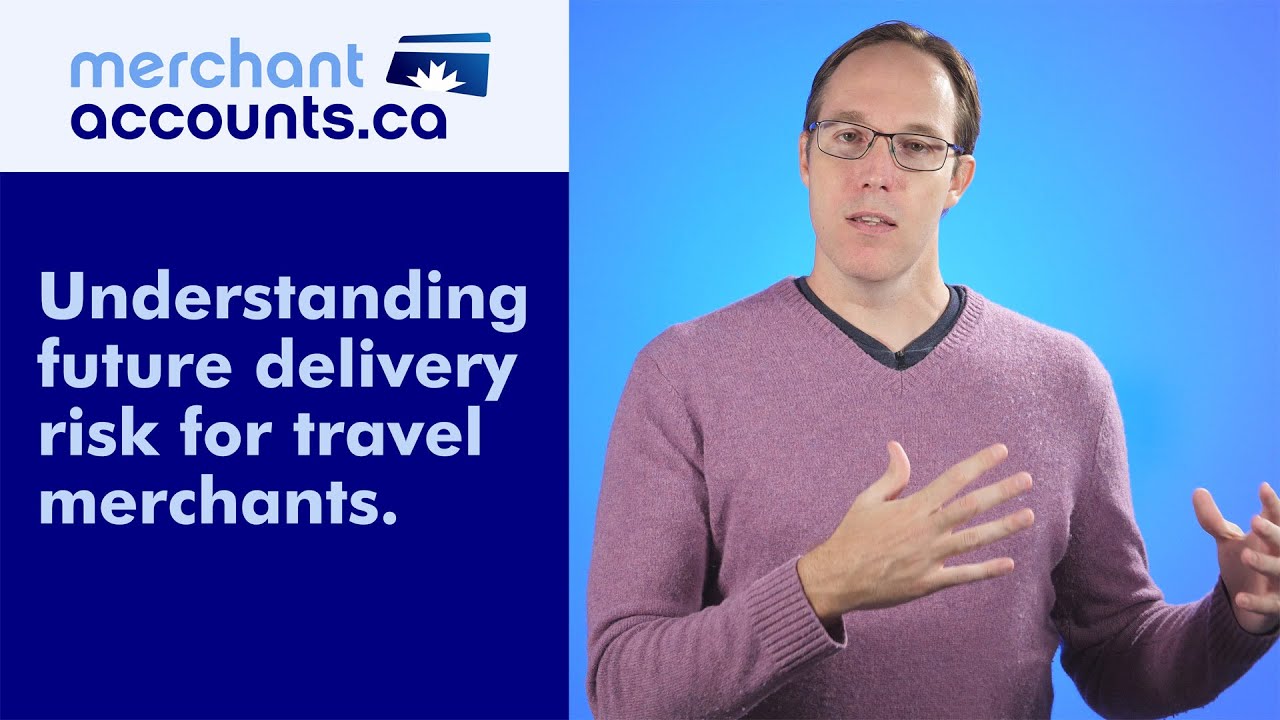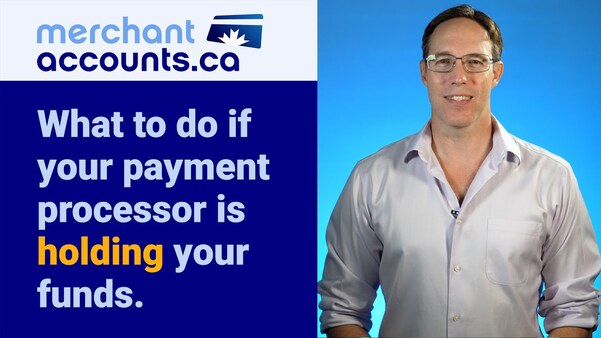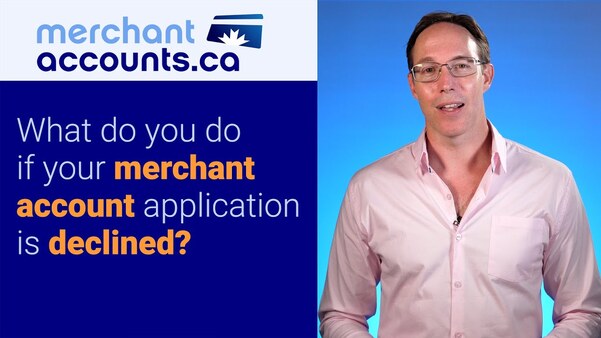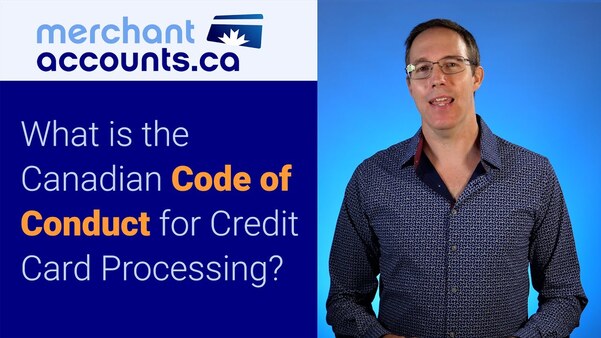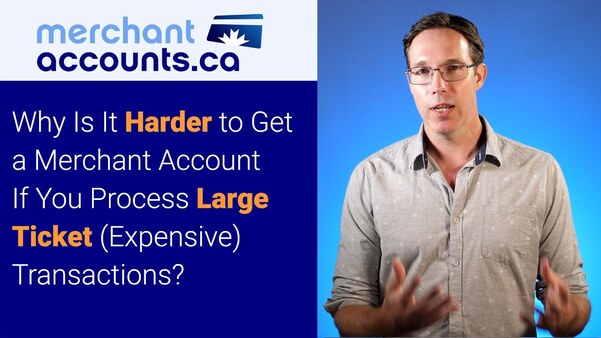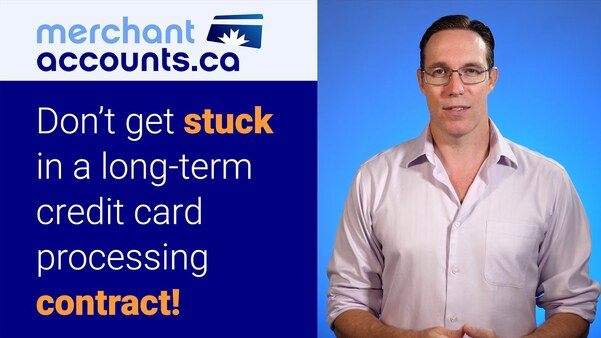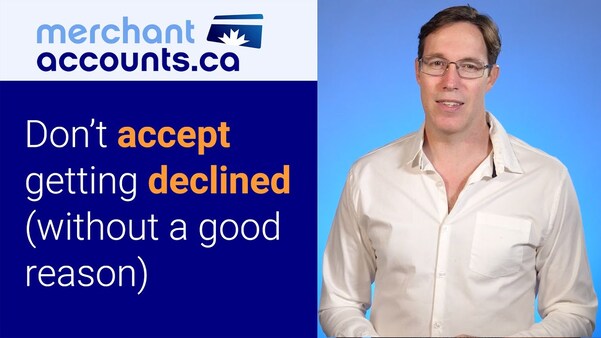Why do Paypal and other payment aggregators sometimes freeze the accounts of successful and growing businesses?
May 10, 2012
by David Goodale
My Paypal account is frozen - HELP!

In fact, this is probably the most common complaint I hear about Paypal. What most merchants don't understand is that the greatest benefits of Paypal (almost no application paperwork and little upfront cost to begin processing), are also the criteria which are most likely to make young businesses with strong growth run into a problem with their Paypal account somewhere along the way. When this happens it is not Paypal's fault, but is a direct result of the merchant not understanding that Paypal is a payment aggregator.
To be clear, I do not intend for this to be an attack on Paypal. In fact, Paypal is an affordable and attractive payment method for many start-ups and small businesses. My intent is to identify some of the more important differences between a payment aggregator (such as Paypal) and a traditional merchant account provider.
Paypal is an Aggregator - but what does this mean?
The standard Paypal service is that of a payment aggregator. In order to understand what an aggregator is we should quickly recap what a merchant account is. A merchant account is a bank account that holds funds captured from credit card transactions. The moment a credit card is processed the funds are transferred from the cardholder into the merchant account. From there funds are settled out to a regular business bank account in about 48 hours. In order to process credit cards you always need a merchant account, except in the case of an aggregator...An aggregator is different. An aggregator such as Paypal does not provide business owners with a merchant account. Instead, they use their own merchant account to process transactions for other parties. That is where the word "aggregate" comes from - they aggregate all transactions through one account. In reality what is happening is Paypal creates sub-accounts under their own account for each user. Becoming a payment aggregator is a complicated process and is highly regulated by Visa and MasterCard. For merchants there are several immediate advantages to using an aggregator. The biggest advantage is the speed - it's very fast to get started and begin processing.
It's so fast because Paypal doesn't need to issue an actual merchant account for each company. If we look a little bit more closely at the history of Paypal this makes sense. Many people using Paypal are individuals or small businesses moving small sums of money. In fact, Paypal began it's life as a person to person payment transfer service. For this type of transaction the amount of effort needed to open a new sub-account for a user is minimal. There is also not much chargeback risk because transactions are small and the volumes being traded are minimal. Paypal would perform a few relatively simple application and identity checks in order to help a merchant begin trading. This is very attractive because you can get started almost immediately. It's a tremendous benefit in the short term, however has a potential downside in the long term.
A bit of googling message boards will reveal a pattern in that Paypal merchants run into problems more often than normal in terms of having their accounts suspended without warning when compared to traditional merchant account providers. For an individual user this may not be a major problem while the necessary due diligence checks are carried out. However, suspension of processing or settlement of payments can have a significant impact on a business, particularly for businesses with high ticket value or low margin transactions that must ensure continued cash flow to bring in new inventory and maintain fulfillment of orders.
Why does Paypal suspend accounts? It's because of a reactionary rather than a preventative approach.
Since Paypal approves almost everyone to use the service, it must then take a more reactionary approach to examine and monitor the accounts of people using the Paypal service.Without getting too into the risk and underwriting side of the payments business, it is important to understand that when a merchant takes payment for a good or service, the customer must receive what was promised. If they do not the customer is entitled to dispute the transaction (called a chargeback). If a chargeback is decided in favour of the cardholder the funds *must* be returned to the customer. What happens if the merchant has gone incognito, or simply does not have the money to return the funds? If this happens the processor is on the hook for the transaction. This is a simplified explanation of how risk (specifically chargeback risk) works for processors within the credit card industry.
There are other parts to risk monitoring beyond the intended scope of this discussion, but for a quick point of reference the processor must also make sure that merchants are not carrying on fraudulent or unlawful practices with its merchant account. In other words, it must make sure that terrorism groups are not moving funds covertly, make certain that organized crime is not laundering money, and that identity thieves are not carrying on business in the name of another person.
Consider for a moment how many users Paypal has. In particular, consider how many new users open accounts every day. Paypal has hundreds of thousands of users. The amount of time it would consume to undertake a full risk review on every single person that fills out the signup page on the Paypal website would be tremendous. Paypal cannot undertake a complete risk review on every person that fills out the signup page. It would be an impossible, and also a pointless endeavour because many of these people would not end up using the service beyond a few small transactions. This is the model of an aggregator -- to remove the barriers to entry and encourage as many people to use the service as possible.
The aggregator model is wonderful in that it makes it very easy to begin taking payments, but you may now be starting to see the problem at this point: it is an intrinsic part of the Paypal model that they must to some degree take a reactionary approach to the review and adjudication of merchants using their service.
Multiple flags and triggers can cause an actively trading account to be flagged for review. For example, if a small business begins seeing increased trading volume the account may be flagged. Or, if there are a higher than normal number of international orders from countries with high degrees of fraud. Or, if a merchant begins doing too many refunds or getting too many chargebacks. The more significant the anomaly, the more closely the account is likely to be examined.
This is where the problem arises. In some cases an account review may be a minor inconvenience in which the trading history is examined and the merchant has funding of its account delayed by 48 hours. This is nothing more than a blip on the radar. However, in other cases the funding could be held indefinitely, or the account terminated altogether.
This other side of the coin is where merchants are sometimes caught unawares and has the potential to do significant damage. I can refer to one example from memory that occurred a few years ago. I received a call from a travel merchant that provided villa rentals overseas. Travel based accounts are always higher risk than most accounts because of the risk of a person missing a flight, not liking the accommodations, or any other number of factors that could lead to a chargeback dispute. (Whether the customer is reasonable or unreasonable, they can always open a dispute and the merchant must defend against it). In this case the merchant had used Paypal for several months, and during this time their trading volumes grew significantly. Everything had been running smoothly when out of the blue (from the merchants perspective) Paypal contacted them and told them that they were doing an investigation of the account. The funds were temporarily put on hold and the ability to collect additional payments were disabled.
The merchant was later told that their business could not be supported. They were left scrambling to find an alternative at a point in which their business was growing strongly. It left a negative perception in the mind of the merchants customers, and was an altogether stressful period for the merchant.
Did it need to happen that way? How could the problem have been avoided?
In the case above the situation would likely not have happened with a traditional merchant account provider. The reason why is when issuing a MID (merchant ID) the underwriter will collect all of the details of the business in advance. Most banks will want to see financial statements and projected trading volumes. A full risk-review is undertaken before proceeding and the bank will have a very solid understanding of what is likely to happen when the merchant begins processing. This where there is a greatly reduced likelihood for service interruption because the processor knew what to expect from the outset. At the time of the initial review the business owner will likely consider this to be a significant inconvenience, but it is often much better to deal with this upfront than it is to react months later at a stage in which the business may be going through growth. Management should be working on building the business, not scrambling to maintain support for the continuation of their ability to accept payments.Once a merchant understands why a merchant account provider undertakes a review they can begin to appreciate the benefits of why this is done. I won't go so far as to say that business owners prefer to go through the review process - of course they don't. Paperwork is a pain. However, they do appreciate the fact that if a processor simply took on any merchant, without any proper sort of review of what is being sold or proper due diligence, the processor would be unable to maintain any sort of stability to their business. (Would you want to have the funds from your sales being held by a processor that is potentially exposed to massive liability from chargebacks because they were approving merchants that probably shouldn't have been approved?) I should qualify that Paypal is absolutely not exposed to massive liability because they do undertake a full review of accounts, and responsibly manage risk like any reliable payments processor. It's just that Paypal by virtue of it's business model, to some extent, must do so after the merchant has started trading, at a point which is convenient for Paypal (when trading volume, chargeback rates, or other flags are triggered), but which is not convenient for the merchant. That is why it is often best (especially for higher risk businesses and those that are likely to have rapidly increasing trading volumes) to deal with this at the start, and not at an undetermined point later when the problem could have a more potentially serious impact on the business.
There are also other differences between an aggregator and a traditional merchant account provider. An example of two other significant differences is the chargeback dispute resolution process is different (less control by the merchant), and you will usually have less control over the transaction flow and design of the website checkout pages.
Summary
I have attempted to take an even-handed approach to examining the differences between an aggregator and a merchant account provider. To be certain, there are both advantages and drawbacks to both models.After reading this you will understand some of the reasons why Paypal has a higher than average number or complaints related to the freezing of accounts, or perceived sudden account termination. If these merchants better understood the difference between an aggregator and a traditional merchant account provider they wouldn't have been caught as off-guard (and wouldn't have had as much cause for compliant when it happened).
As a merchant or business owner, you simply must examine your business to determine which avenue will be most beneficial to your company. It may be the case (in fact, it's often the case) that in the early phases of your company development the simplicity and low setup cost of using an aggregator may be desirable. You can simply move to a full merchant account later when your trading volumes reach a certain point. Keep in mind if you do this though that you will be required to re-integrate into a different payment system later down the road.
At the end of the day, you want to ensure that your customers can quickly and easily pay for their purchase, with a high degree of confidence. If you accomplish this goal, you can focus on the other and more important aspects of your business - like driving more customers to your website.
If you think your business is going to go through a strong growth period or be subject to any of the reasons for account freezes that we've talked about, contact Merchant-Accounts.ca today to find out how to set up your own merchant account.
Related Topics
March 15, 2022
It's common for merchants to have security reserves, rolling reserves, or holdbacks from the credit card processor. In this discussion we explore how to reduce or eliminate them.
December 23, 2014
One of the worst situations to find yourself in is being stuck in an unfair credit card processing agreement. They can be costly and difficult to get out of. In this article we'll explore ways to get out of the agreement at painlessly as is possible.
June 24, 2020
Why do payment processors have holdbacks or reserves on your merchant account? In this discussion we explain the concept of future delivery chargeback risk, and explore how to reduce the collateral held on your merchant account.
December 08, 2016
Establishing credit card processing for an airline can be very difficult, especially for young airlines, but also even for well established carriers.
June 12, 2023
David explains what to do if your payment processor suddenly starts holding onto your funds, or implements a larger holdback or reserve.
August 27, 2023
What should you do if your merchant account application is declined? David explains why payment processors decline some merchants, and how to turn it around and get an approval.
November 23, 2023
Canadian merchants are protected by the Code of Conduct for the credit card processing industry. It's a set of rules that credit card processors must follow with the intent of protecting business owners from unfair pricing and contract practices. For example, it protects merchants from unfair price increases. In this video David explains the most important things that business owners should know about the code of conduct.
February 13, 2024
If you sell expensive products or services you'll find that many payment processors want to hold back some of your funds in a reserve, or may even decline your merchant account application altogether. In this video David explains why this happens, and what you can do about it.
July 10, 2024
How long of a contract should you be willing to sign when setting up credit card processing for your business? In almost all cases the answer should be monthly. Long term contracts should be avoided. David explains how to get a monthly agreement, and a few exceptions to the rule when long-term contracts can be beneficial.
February 26, 2025
Merchants can get declined for a number of reasons like bad credit, a high risk product or service, or the risk of chargebacks to the credit card processor is too high. However, you should always be able to get a clear explanation of why you were declined. A good strategy is to always find out why you were declined, and specifically: what you should work on improving in the future. If your credit card processor canít tell you why you were declined this is a sign of a bad credit card processor.
Learn How To Lower Your Credit Card Processing Fees
If you haven't reviewed your processing costs in a while take a moment to view our rates.
View Rates




